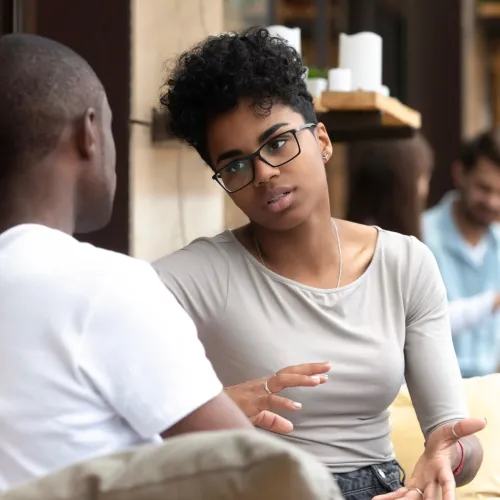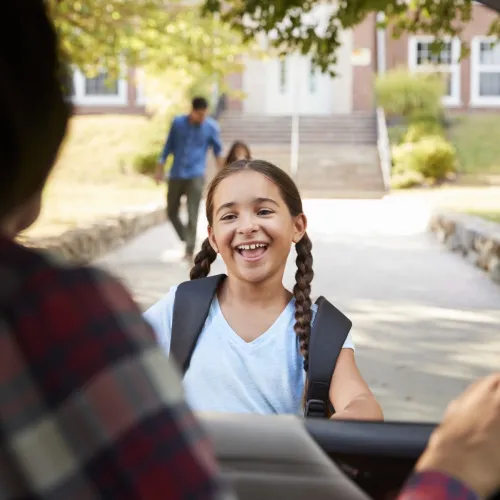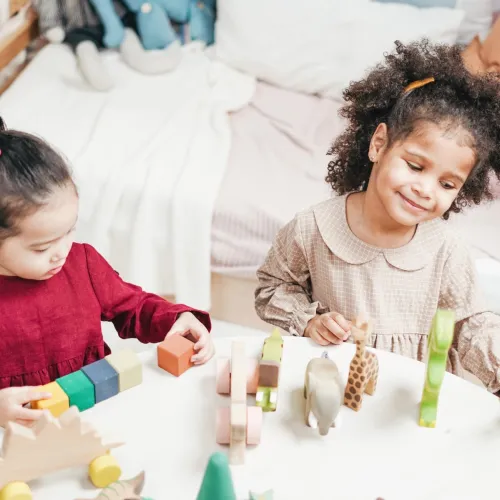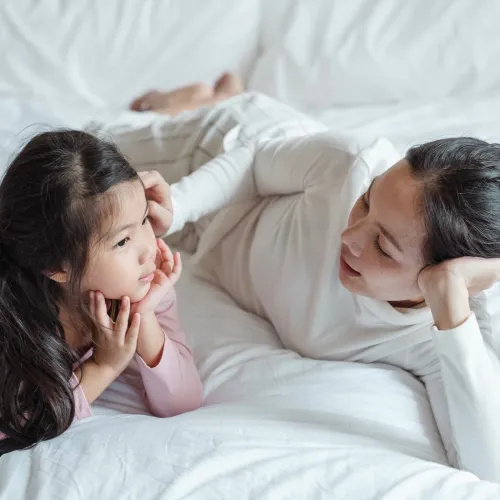Dear Marsha: Talking to Kids About COVID-19

My kids are really nervous about COVID-19. I try to talk with them about it, but they say they have heard other things at their other parent’s house. What can I say to them?
There are a lot of mixed messages about COVID-19 that are being told to both adults and children, and it seems to be a moving target with information about the virus changing almost daily. Do not assume the worst about the other parent; this is a time for giving the benefit of the doubt.
As always, what you say to your children will depend on their age and maturity, as well as what you know about their temperament and current level of anxiety. As a general rule, let children lead with questions that concern them and/or they are confused about rather than giving them information right away.
Use language they can understand, tell them what we know for sure (but also let them know that this can change), be reassuring to calm their fears, and ask them questions at the end to make sure what they heard is what you meant for them to hear. That gives you the chance to make any corrections or talk further about their concerns. If you think they are not bringing up the topic but are hearing or reading a lot about it, especially on the internet and from friends, then you can ask them what they are learning about the virus and what questions they have.
Do find a way—especially with a less talkative or shyer child—to raise the topic if they do not. Children often are fearful about what they hear and think they know but don’t always ask directly about it. If they don’t ask, you can ask questions to show them it is not an unspeakable topic.
Ask questions that let them speak first about what they know or are concerned about. You might say, "Everyone is talking about the virus these days. What are you thinking about it?" Provide information in response to their questions without giving sensationalised information. Sensationalised information may include details about how many people are dying or how the virus is spreading to their community quickly.
What is COVID-19?
If they aren’t sure what COVID-19 means, here is some language drafted by the Center for Disease Control in the United States that may help children understand it a bit better:
- COVID-19 is the short name for “coronavirus disease 2019.” It is a new virus. Doctors and scientists are still learning about it.
- Recently, this virus has made a lot of people, especially grown-ups, sick. Scientists and doctors think that most people will be ok, especially kids, but some people might get pretty sick. Those most likely to get sick are people who already have medical problems.
- Doctors and health experts are working hard to help people stay healthy.
Discussing COVID-19 With Your Co-Parent
When discussing this topic with your co-parent, accept the fact that you may speak to your children differently about the Coronavirus pandemic. At the same time, you should both acknowledge what you are both learning from sound medical news sources. Most people will not get sick if they follow recommended rules and routines, and you should try to implement these within both of your households.
Here are four main rules and routines for every member of both your households to practise:
- Wash your hands much more often than we are used to doing. Keep your hands away from our eyes, face, and mouth as much as possible.
- Cover your cough with your elbow or upper arm so you don’t cough directly at someone.
- Wipe down surfaces that everyone uses on a daily basis, like kitchen counters, stair railings, and other objects that are frequently touched.
- Keep social distance from others. Social distancing is carefully maintaining the physical space between people to avoid spreading illness. Staying at least six feet away from other people lessens your chances of catching COVID-19.
In implementing these rules, tell your children that if we take care to follow them, we don’t need to feel afraid. Of course, anyone can get sick at any time, including us, but we are taking great care to reduce that likelihood by following these rules.
What to Say to Children of Different Ages
Speaking to Older Children
If your children are school age or older, you may explain how information about the virus is coming rapidly from many different sources that may contradict each other at times. That said, you can add the fact that information sharing is getting better as we have had more time to share with each other in this town/community, in this country, and with other countries who experienced an outbreak of the virus before the United States did.
You could also add that people from every country, race, and ethnic group are coming into contact with each other. No one group can be blamed for the virus; it is just a part of being connected across the world.
Speaking to Younger Children
If your child is very young, you'll want to adjust what you say into terms they can understand. You might say that some sicknesses spread more easily between people, so therefore, we are keeping to ourselves and practising routines that keep our family clean and germ-free.
Tell them that you know it's hard to not go to school and see friends, but this situation is like when they have a stomach ache or fever: they sometimes stay at home until they feel better so they don’t make it worse for them or anyone else around them. In social distancing, you are essentially doing the same thing here. The difference is that you may be doing it while you're healthy and for longer, but you're doing it so that you can help keep everyone around you healthy.
Here's one good source for current information related to the COVID-19 pandemic: https://www.hopkinsmedicine.org/health/conditions-and-diseases/coronavirus
Take Marsha's Survey on Co-Parenting
Assist Dr. Marsha Kline Pruett with her research on what shared parenting is like across different families by taking this survey. All submissions are entirely anonymous.




